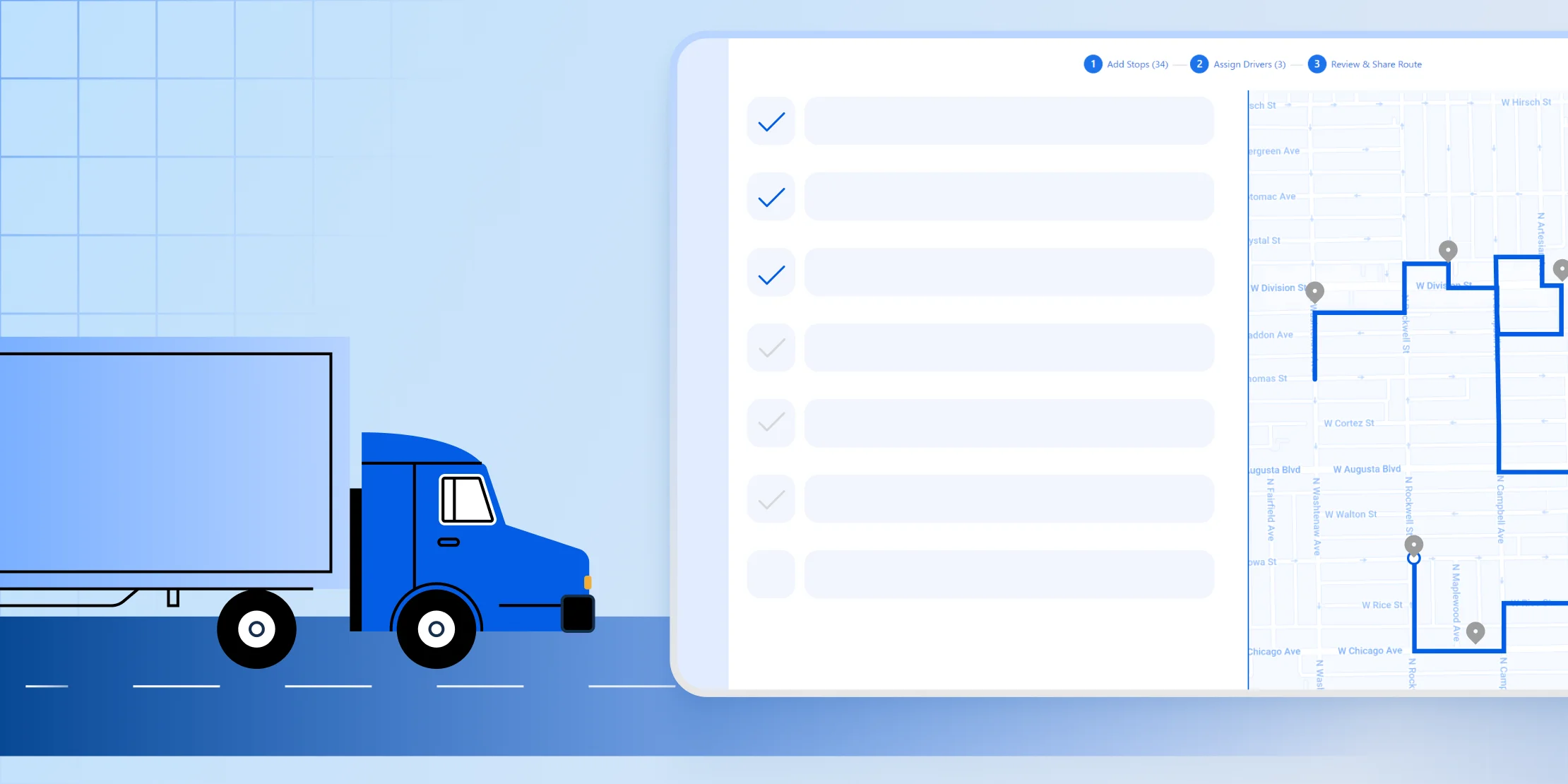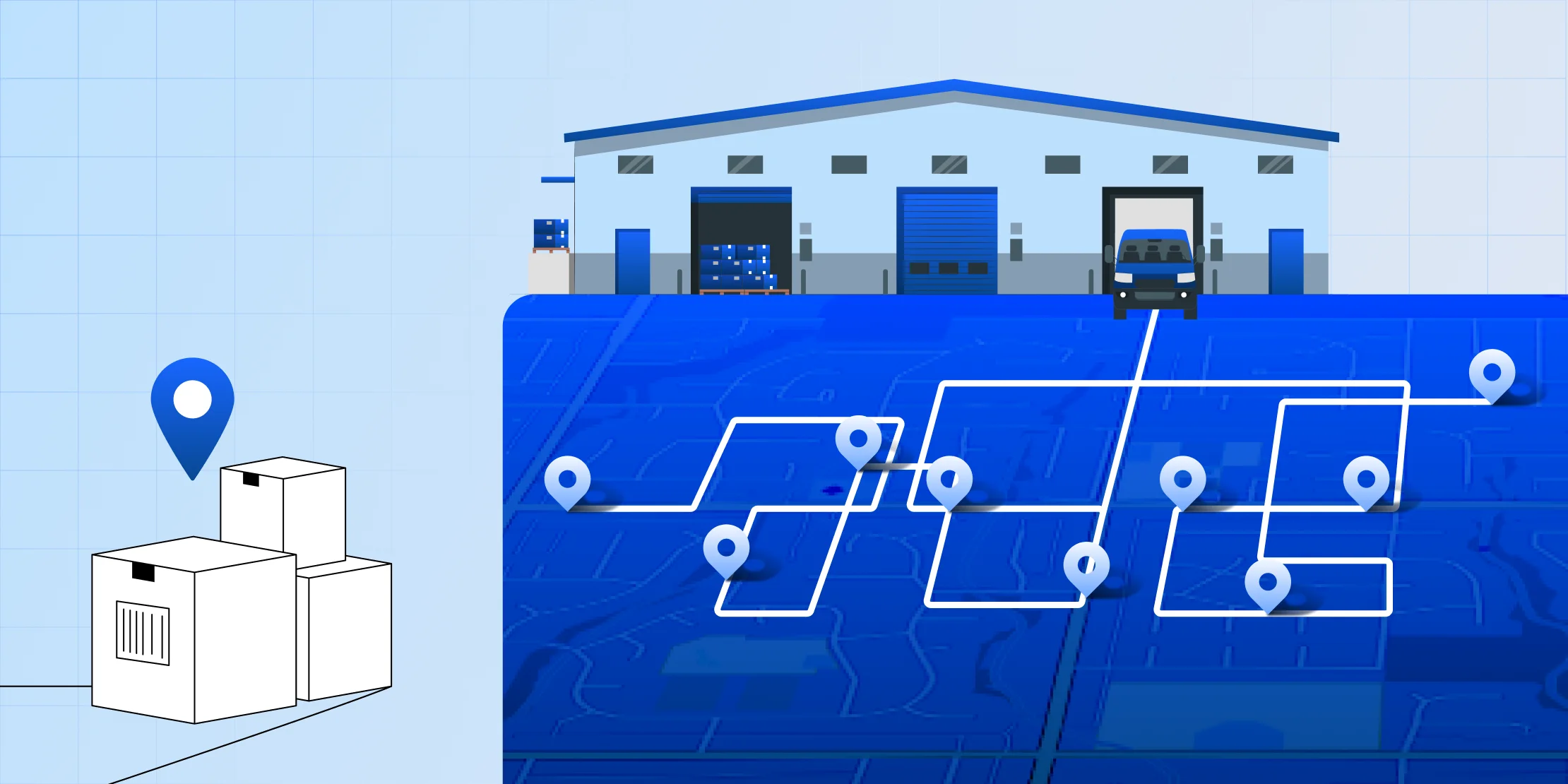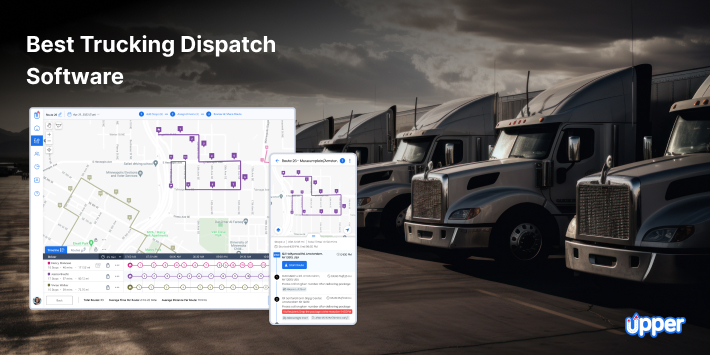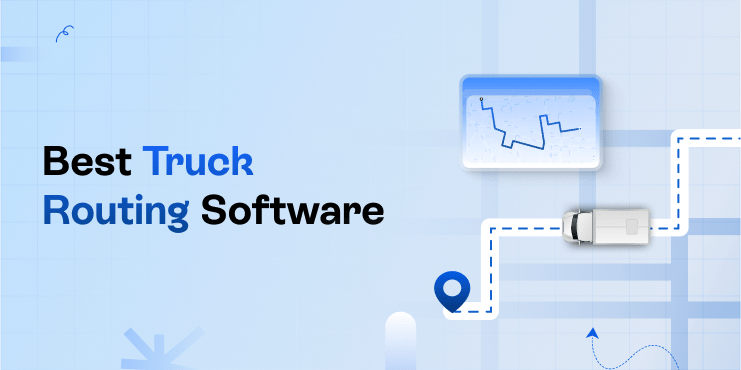Are you a logistics business owner relying on manual carrier management?
Do you often find yourself struggling with data silos, wasted time, and limited shipment visibility due to manual carrier management?
If YES, it’s time to switch to a carrier management system that can streamline your logistics operations.
If you want to learn more about what a carrier management system is and how it can help, this blog is for you.
We will cover the concept of carrier management, explain a carrier management system, highlight the features to look for when choosing one, and discuss how it can benefit your business.
Let’s dive in!
Table of Contents
What is Carrier Management?
Carrier management involves selecting, negotiating, and evaluating different transportation companies for your business. The goal is to build a network of reliable carriers that can ship your goods efficiently and cost-effectively.
Effective carrier management helps optimize logistics operations, reduce costs, and improve customer satisfaction. Ultimately, it’s about fostering strong, long-term relationships with carrier partners to drive success in your supply chain.
What is a Carrier Management System?
A carrier management system (CMS) is software that helps businesses manage their relationships with carrier service providers. It facilitates tasks such as selecting carriers, negotiating contracts, and evaluating carrier performance to ensure they meet business needs.
This system manages all stages of the carrier lifecycle, including:
- Carrier selection and onboarding: Determining your shipping requirements and researching carriers based on reputation, service types, and cost-effectiveness.
- Contract management: Negotiating terms like pricing, payment conditions, and service guarantees.
- Carrier performance tracking: Monitoring metrics like on-time delivery rates and order accuracy to make data-driven decisions.
- Dispute handling and resolution: Outlining transparent processes for handling claims and disputes, helping to minimize disruptions and recover costs from lost or damaged products.
By managing and enhancing relationships with carriers, a CMS ensures goods are transported safely, efficiently, and cost-effectively from origin to destination.
5 Benefits of a Carrier Management System
Carrier management software is one important tech solution that you can implement to enhance your overall logistics efficiency and cost-effectiveness.
1. Enhances cost savings
Carrier management software plays a crucial role in evaluating multiple carriers based on multiple criteria, including:
- Service quality
- Transit times
- Fuel surcharges
- Claims ratios
- Return rates
- Scorecards
- Customers’ feedback
You can also consider their freight prices and negotiate favorable rates and terms to choose the carrier company that offers the best of both—reliability and cost-effectiveness.
Moreover, CMS provides dynamic route planning and optimization capabilities to create efficient delivery routes and adjust them based on real-time changes, such as:
- Accidents
- Vehicle breakdowns
- Last-minute delivery orders and cancellations
- Inclement weather conditions
For instance, it enables dragging and dropping the stops along a route to change their sequence based on priority changes. It lets you add or delete stops and reassign them to another available driver to avoid schedule disruptions.
CMS further lets you consolidate similar shipments, utilize bulk discounts, and optimize your packaging to minimize dimensional weight to reduce your overall shipping costs.
Optimize Your Carrier Management with Superior Route Planning
Use Upper to streamline your carrier management by creating efficient, cost-effective routes. With Upper’s advanced routing algorithm, you can minimize transit times, improve fuel efficiency, and ensure your deliveries arrive on time.
2. Increases operational efficiency
An effective carrier management system helps enhance overall operational efficiency in multiple ways by enabling you to:
- Optimize delivery routes, which helps reduce travel time and distance to cover more stops in a specified duration, increasing daily route efficiency.
- Track your shipments in real time, identify bottlenecks, and promptly address them with prompt decision-making to improve transportation efficiency.
- Evaluate your carrier performance regularly based on different criteria, including on-time delivery rates, failed deliveries, damage rates, customer satisfaction scores, or fuel surcharges. These data-driven insights help you determine whether to renew your contract or switch to another carrier to enhance delivery efficiency.
- Define the rules to auto-allocation carriers to shipments based on cost, weight, volume, or size, eliminating the need to manage and allocate carriers manually.
- Auto-generate customs documentation, including shipping labels, helps you save time while minimizing errors.
3. Enhances customer satisfaction
Customer satisfaction is pivotal to a business’s success. Carrier management software lets you enhance it by:
- Letting you pick reliable carriers with a proven track record and high customer ratings.
- Reducing transit times and enhancing on-time delivery rates through efficient routes considering multiple factors, including real-time traffic patterns.
- Allowing you to adjust the sequence of stops to handle last-minute changes, such as traffic congestion, accidents, vehicle breakdowns, or priority shifts, ensuring timely delivery
- Communicating precise ETA notifications based on drivers’ real-time locations and schedule changes to offer visibility into transportation operations, which builds trust and transparency.
4. Facilitates compliance and risk mitigation
Adherence to legal regulations and mitigating risks is essential for a logistics company to sustain and grow its operations while maintaining a positive brand image.
If you have a business that involves transporting hazardous or flammable materials, carrier management software helps you:
- Define restricted zones based on zoning laws and regulations to prevent drivers from entering prohibited areas and prevent legal penalties.
- Plan loads based on vehicle capacity specifics while complying with maximum permissible weight per vehicle and routing them to truck-specific HAZMAT routes matching these weights.
- Track shipments to identify deviations from planned routes and initiate timely interventions to mitigate the risk of theft or loss.
- Ensure digital documentation of deliveries to maintain a verifiable record for future reference, minimizing customer disputes and legal issues.
5. Enables scaling your business
Career management software is designed to adapt to your business as it grows. This allows you to handle massive delivery volumes, more carriers, and an ever-increasing number of shipping destinations.
For that, CMS lets you integrate with advanced tech solutions, such as:
- An inventory management system is used to manage and optimize inventory levels, fulfill orders, and cut down on warehousing costs.
- E-Commerce platforms like Shopify or WooCommerce let you import incoming orders and map them directly as location pins to create routes.
- Reporting tools that let you analyze performance based on the percentage of successful and failed deliveries, first-attempt delivery success rate, or return rates to identify and eliminate inefficiencies hindering your growth and scaling logistics operations.
It is clear that carrier management software has multiple advantages, but it may become challenging to make the right choice with so many options available on the market.
The following section covers the essential functionalities a CMS needs to make an informed decision.
Top 7 Features to Look for in a Carrier Management System
A carrier management system, as discussed above, helps manage all the processes involved in the entire carrier lifecycle, from beginning to end.
When choosing carrier management software, you should look for features that streamline all these aspects.
- Carrier selection and contract negotiation: Your CMS must be able to provide critical data related to carriers, including rates, timely deliveries, fuel surcharges, transit times, claims ratio, and service quality. It should help you evaluate different transportation service providers, negotiate prices based on the market rates, and make an informed choice.
- Automating administrative tasks: Your CMS should automate various manual and paper-intensive tasks, including invoicing, shipping documentation, data entry, address validation, and proof of delivery to avoid human errors and expedite them.
- Route planning and optimization: Your CMS must let you create efficient delivery routes based on multiple constraints, including real-time traffic, drivers’ shifts, and customers’ preferred time windows, to help reduce your fuel and vehicle wear/tear and decrease operational costs.
- Live tracking: Your carrier management system must provide GPS-based tracking to monitor your deliveries in real time, display real-time status updates, and dynamic ETA notifications to inform you of potential delivery delays.
- Real-time communication: The software you choose should enable you to communicate with different stakeholders, including your drivers and customers, to ensure coordinated logistics.
- Comprehensive reporting & analytics: An ideal CMS lets you evaluate on-time delivery rates and collect your customers’ or consignees’ feedback regarding the quality of goods delivered, incidents of freight damage, and drivers’ professionalism. Put simply, it should enable you to monitor your carrier performance and take corrective improvement measures.
- Freight bill auditing: Your CMS must allow you to audit bills regularly to ensure they align with contractual agreements regarding fuel surcharges and freight rates.
Carrier Management Software: Your Key to Streamlining Your Logistics
A carrier management system is undeniably important for any business in the transportation industry as it streamlines multiple aspects, including carrier selection, contract management, performance monitoring, and claims management.
It further helps optimize routes, track shipment progress, analyze carrier performance, benchmark against committed quality standards, and renew or terminate a contract. Plus, it automates multiple mundane and error-prone tasks, such as order management, invoicing, and shipment documentation, to save time and increase efficiency.
Different route optimization software solutions, like Upper, provide basic carrier management features, including dynamic route planning, live route adjustments, GPS-based fleet tracking, delivery status updates, and proof of delivery, which are essential to ensuring efficient logistics operations.
So, suppose you are a small-sized transportation service provider relying on manual carrier management but want to enhance your shipment management. In that case, you can try Upper before committing to a full-fledged carrier management system.
Wish you good luck with carrier management!
Frequently Asked Questions
A carrier (or carrier service provider) is a company that offers transportation services for products via rail, road, air, or sea, depending on the nature of products, prices, and travel distances.
Carrier management refers to managing all the processes involved in managing carriers, from contracting and onboarding the most suitable ones or coordinating with them regularly to tracking their progress and renewing or terminating contracts. It helps build strong carrier relationships, ensure seamless transportation of your products from origin to destination, and enhance customer satisfaction.
A carrier management system provides a centralized platform to help you manage all the aspects of carrier management, involving carrier selection, contract negotiation, performance tracking, compliance monitoring, and claims management. It helps you automate workflows, reduce operational costs, enhance customer satisfaction, and scale your business easily.
No, they are not the same but are related. This is because a carrier management system often forms a small part of a larger transportation management system (TMS) platform. It helps perform different activities, including handling carriers, selecting suitable ones, tracking their performance, and ensuring compliance.
Carrier contracts management refers to drafting a legally binding agreement between shippers and carriers that lays down rates, terms, and mutually agreeable compliance regulations. It includes all the activities, from contract creation, negotiation, execution, compliance, tracking, renewal, or termination. It maximizes your contract value while ensuring compliance and good relations with transportation carriers.
Claims management (sometimes referred to as freight claims management) is the process of raising and handling claims in case of damaged or lost shipments during their transportation. Shipping companies raise claims to recover the loss incurred due to cargo damage or theft from their respective carriers responsible for transportation.
Carrier scorecards display several carrier performance metrics, such as on-time delivery rates, travel times, claims settlement ratios, and freight damage rates to help evaluate and compare different carriers’ performance and pick the right one for your business. They also help you manage carrier performance effectively by comparing it against contractual obligations, identifying gaps, and making informed decisions to fill them.









